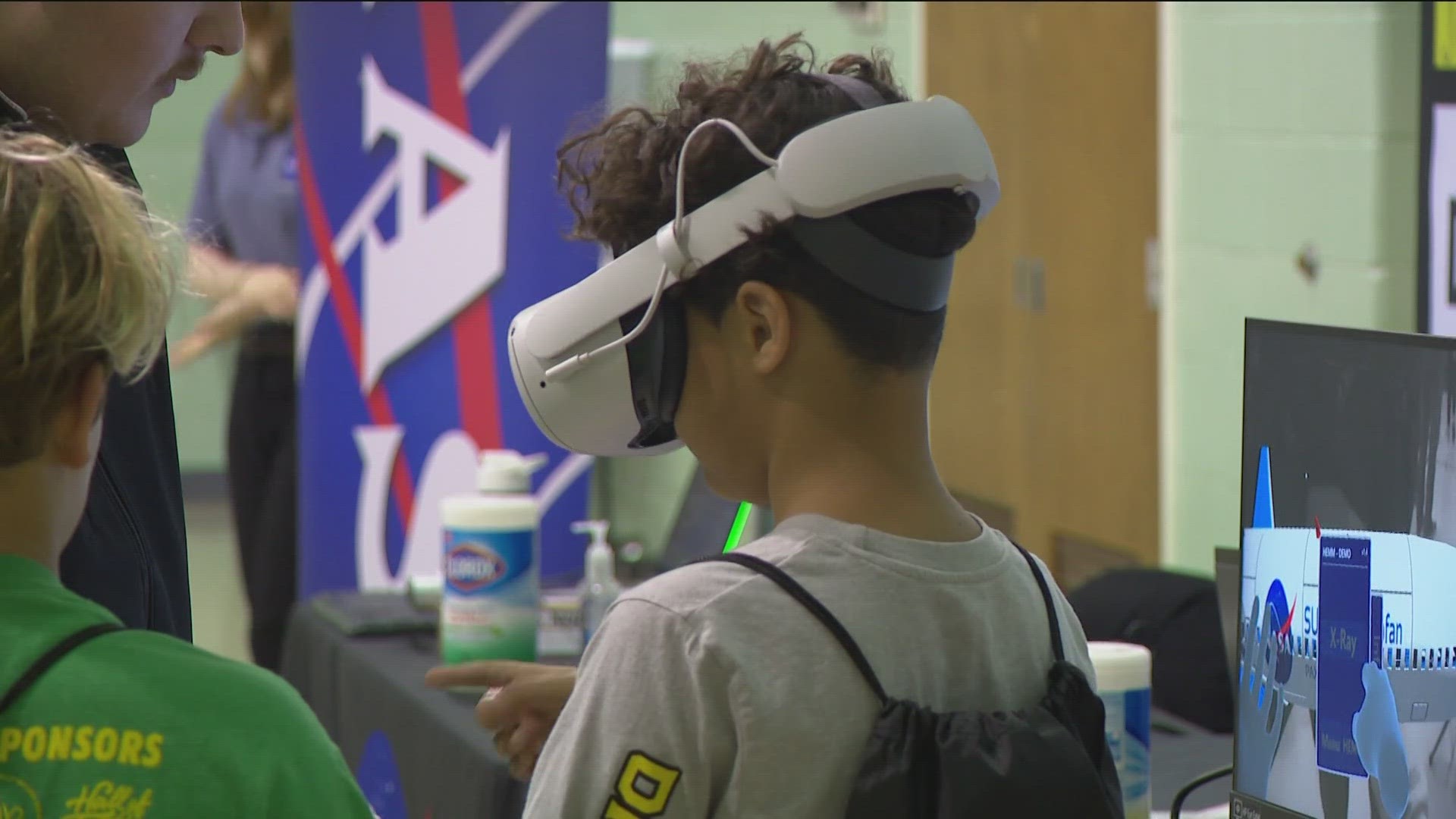OREGON, Ohio — Sky gazers across North America are in for a treat next year when a total solar eclipse will pass right over northwest Ohio.
The highly anticipated celestial event doesn't occur until April 8th, but NASA visited the Challenger Learning Center in Oregon to get kids ready for the once-in-a-lifetime event.
As the anticipation grows across the area and beyond, NASA is readying kids in Toledo to learn about the solar eclipse in full view.
"For the eclipse events, we're trying to just get the kids excited and to be prepared because we don't want them looking at the sun," said Heather Brown, the Public Engagement Specialist for NASA. "It could burn their retina so it's very important that they know to be safe with them and use the glasses and then [know] exactly what an eclipse is."
Of course, solar eclipses and lunar eclipses happen often around the world, but by next year this solar eclipse will go down as one of the rarest of them all. So why is it so rare?
"I believe the last time an eclipse has come around this area, to be in the path of totality, is around 200 years," said Brown. "It's a big deal for this. It's a once-in-a-lifetime situation for the kids to be able to be a part of that."
After next year's solar eclipse, there won't be another one until the year 2099.
If weren't able to catch the event at the Challenger Learning Center but you want to learn more about the eclipse, NASA reps highly advise that everyone takes full advantage of events leading up to the eclipse.
Once students leave the event, they will interactively use tools and safety glasses to enjoy the solar eclipse in the best way possible.
"We made these little make-and-takes where they can cut out the sun and the moon and then it turns into a little eclipse that they can use at their house so they understand the concept of the moon going in front of the sun," said Brown.
For more information on the total solar eclipse, click here.
More from WTOL:

